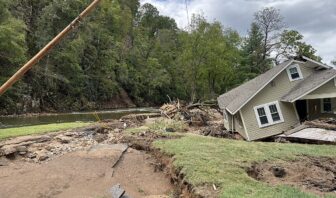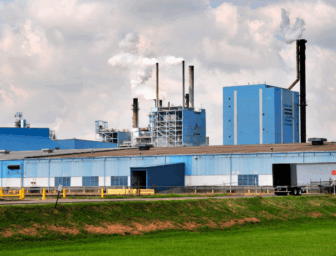Decision by Texas-based Targa Terminals Reduces Dangerous Bakken Oil by Rail Through City
Baltimore, Md. – Environmental groups today applauded a decision by a Houston-based company to withdraw plans for a crude oil terminal in the Fairfield area of South Baltimore that could have shipped over 383 million gallons of crude by rail through the city and the Chesapeake Bay.
“It is great news for residents of South Baltimore living near rail lines that Targa Terminals has now withdrawn its application for a crude oil terminal permit,” said Leah Kelly, attorney for the Environmental Integrity Project (EIP). “Bakken crude oil is volatile and potentially dangerous, and this permit would have allowed one 35-car train per day of Bakken crude to travel through South Baltimore neighborhoods to the terminal.”
Rail shipments of crude oil from the Bakken shale formation in North Dakota have been involved in several large explosions since 2013 following train derailments, including an explosion in the Canadian town of Lac-Megantic that killed 47 people and destroyed the downtown area. Last month, a crude oil train explosion and fire in Oregon’s Columbia River Gorge resulted in an evacuation and cancelation of the last week of school in a nearby town.
Late on Friday, July 8, the Maryland Department of the Environment (MDE) informed EIP that Targa had withdrawn its request for a permit to ship crude oil through its existing terminal in the Fairfield area of South Baltimore.
“This is a victory for Baltimore communities and for the climate,” said Jon Kenney, Healthy Communities Organizer with the Chesapeake Climate Action Network. “Thanks to citizen and legal pressure, Targa has terminated its plan to ship more dangerous crude oil out of Baltimore, and bring a new surge of oil trains through our communities. However, we know there are still thousands of gallons of crude oil rolling through Baltimore every week, putting communities in danger. As a next step, the City Council must act on legislation requiring health and safety studies of oil trains.”
Targa Terminals applied in 2014 for a permit from MDE that would have allowed crude oil shipment and storage at its Fairfield terminal. The company specifically requested approval to handle Bakken crude oil.
In May 2015, MDE put its review of Targa Terminals’ crude oil permit application on hold in response to legal comments filed by attorneys with EIP on behalf of the Chesapeake Climate Action Network, Sierra Club, and Chesapeake Bay Foundation. MDE said at the time it was not moving forward with any further review “until the department receives additional information from the company.”
On June 29, 2016, Targa Terminals withdrew that application rather than provide the information required by MDE. In a responsive letter dated July 8, 2016, MDE advised the company that, until a crude oil permit is granted, the company is “prohibited from receiving, storing, and/or transferring crude oil at the Baltimore Terminal.”
“We’re happy and relieved that Targa Terminals has chosen not to pursue constructing a crude oil storage and loading facility in South Baltimore,” said Jennifer Kunze, Maryland State Organizer for Clean Water Action. “If it had been constructed, this would have increased the air pollution in an already-overburdened area of Baltimore, where neighbors just won the fight to stop construction of the nation’s largest trash-burning incinerator. It also would have meant more trains carrying volatile crude oil through South and Southwest Baltimore, neighborhoods where people’s homes, parks, churches, and businesses are just yards from the tracks – putting them at risk of an explosion if one of those train cars derailed.”
Contact:
Tom Pelton, Environmental Integrity Project, 443-510-2574 or tpelton@environmentalintegrity.org
Kelly Trout, Chesapeake Climate Action Network, 240-396-2022, kelly@chesapeakeclimate.org
Jennifer Kunze, Clean Water Action, 410-235-8808. jkunze@cleanwater.org
###





